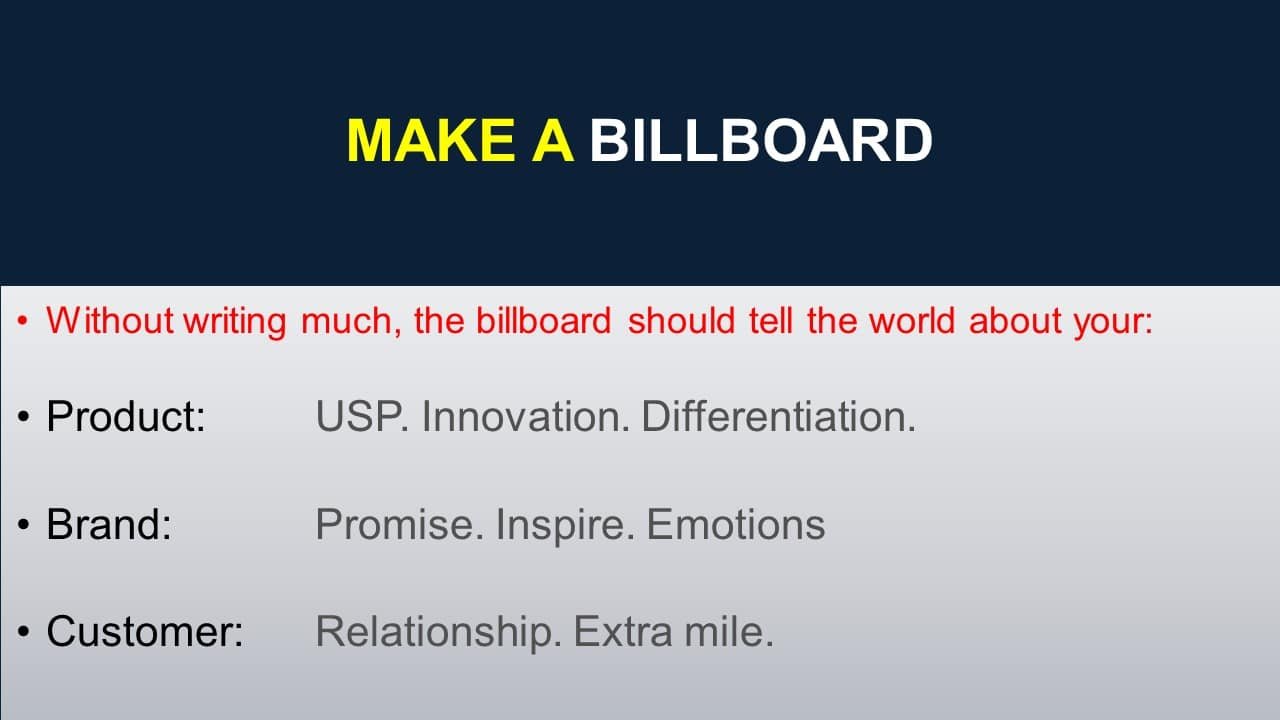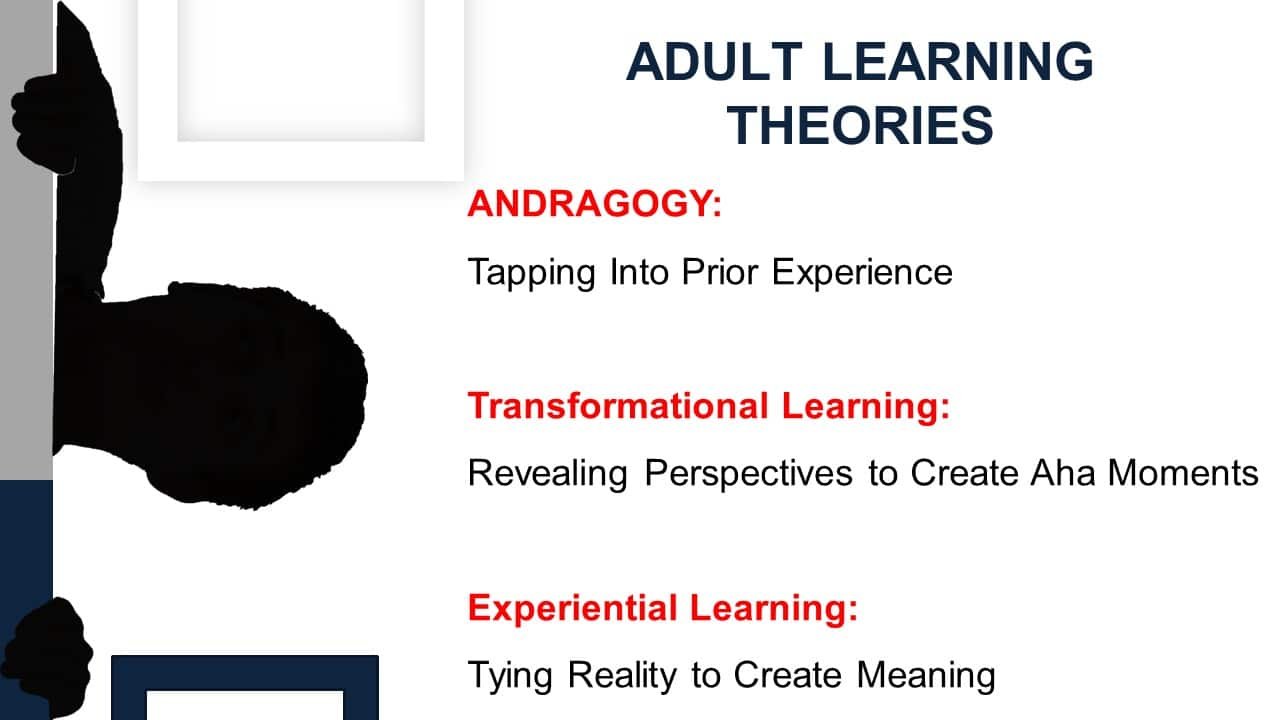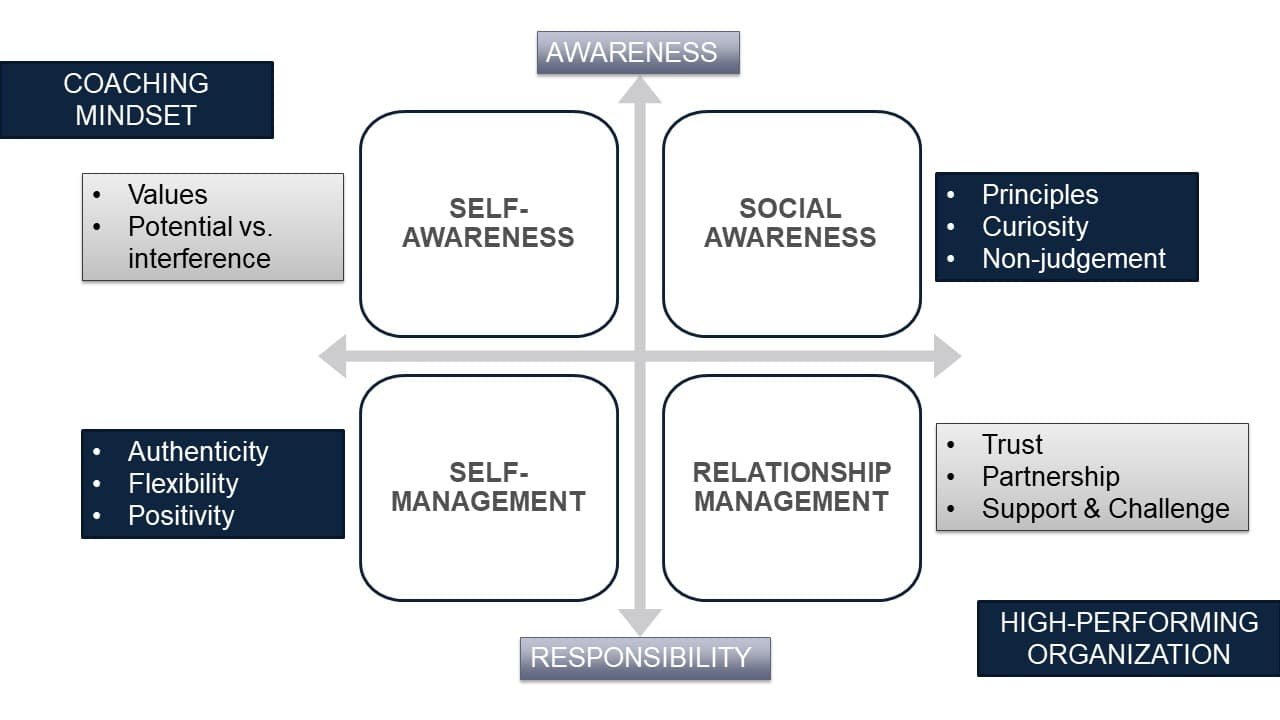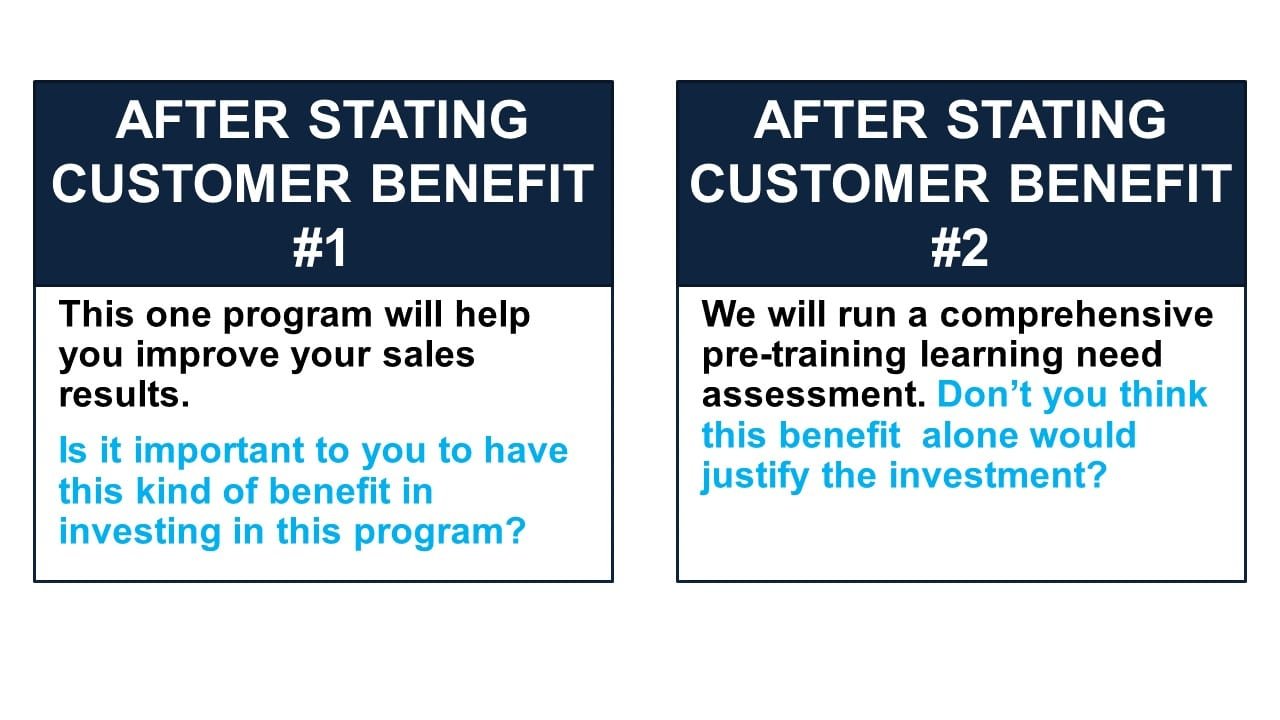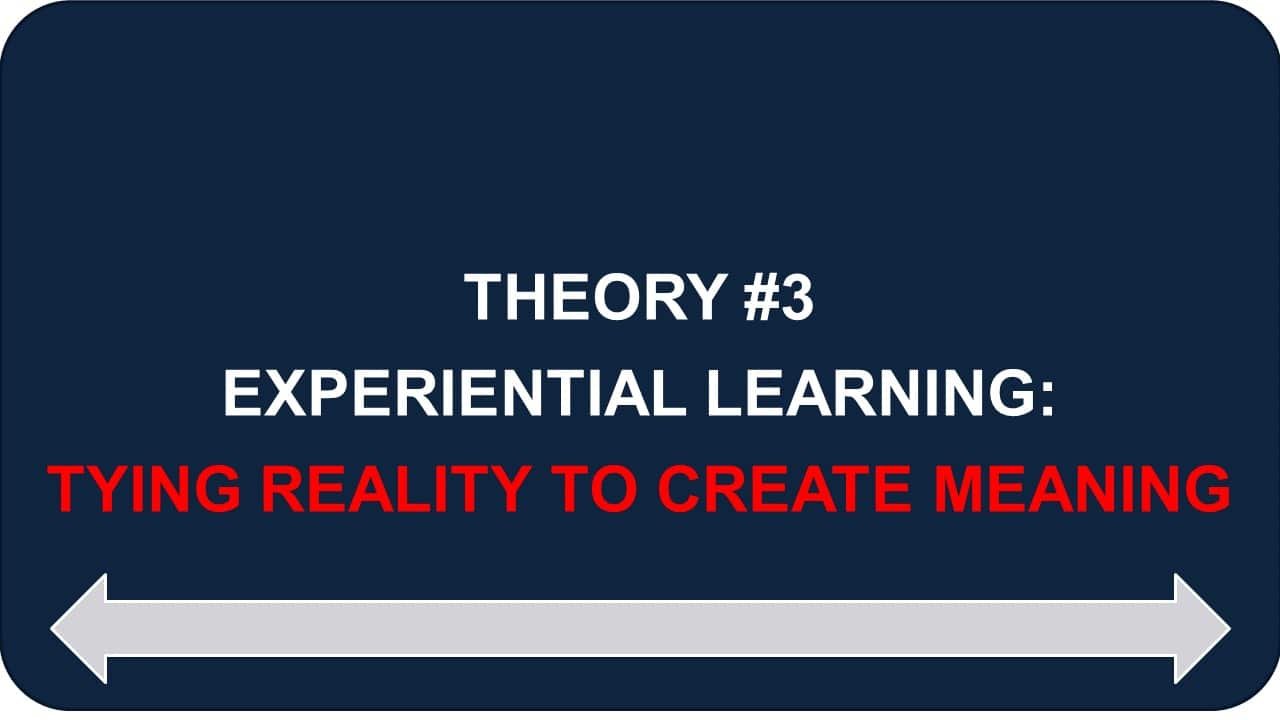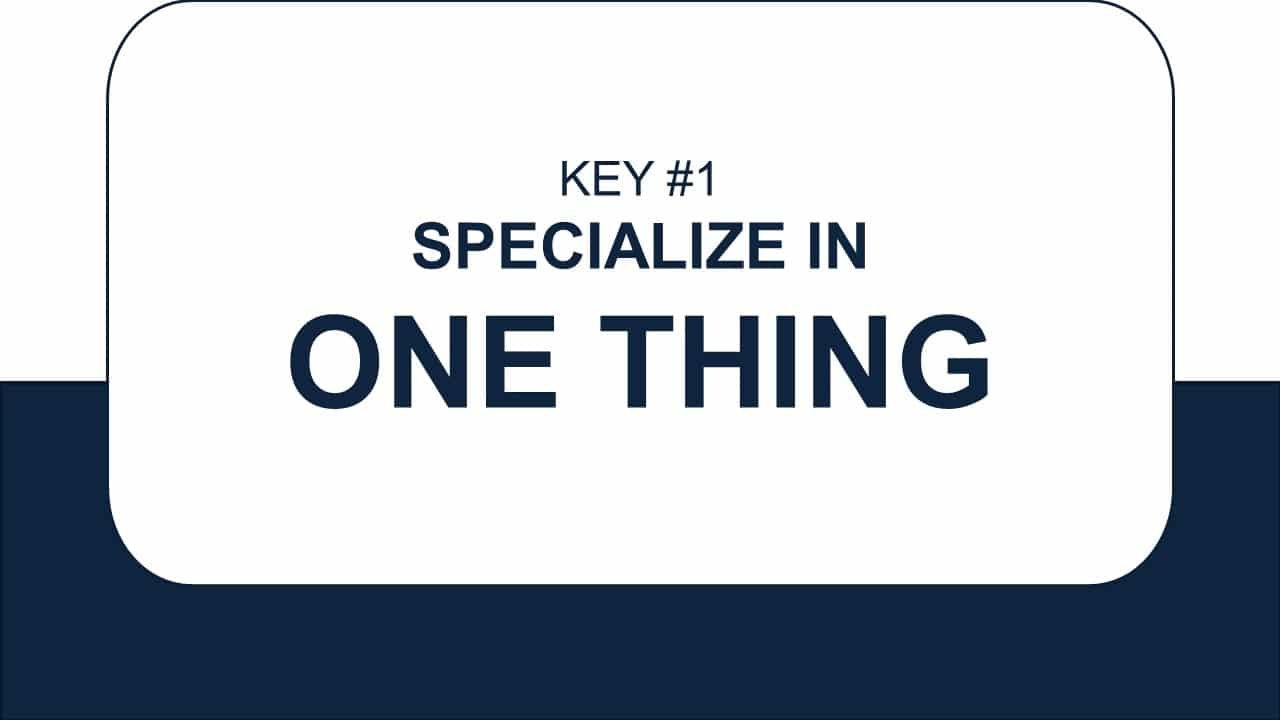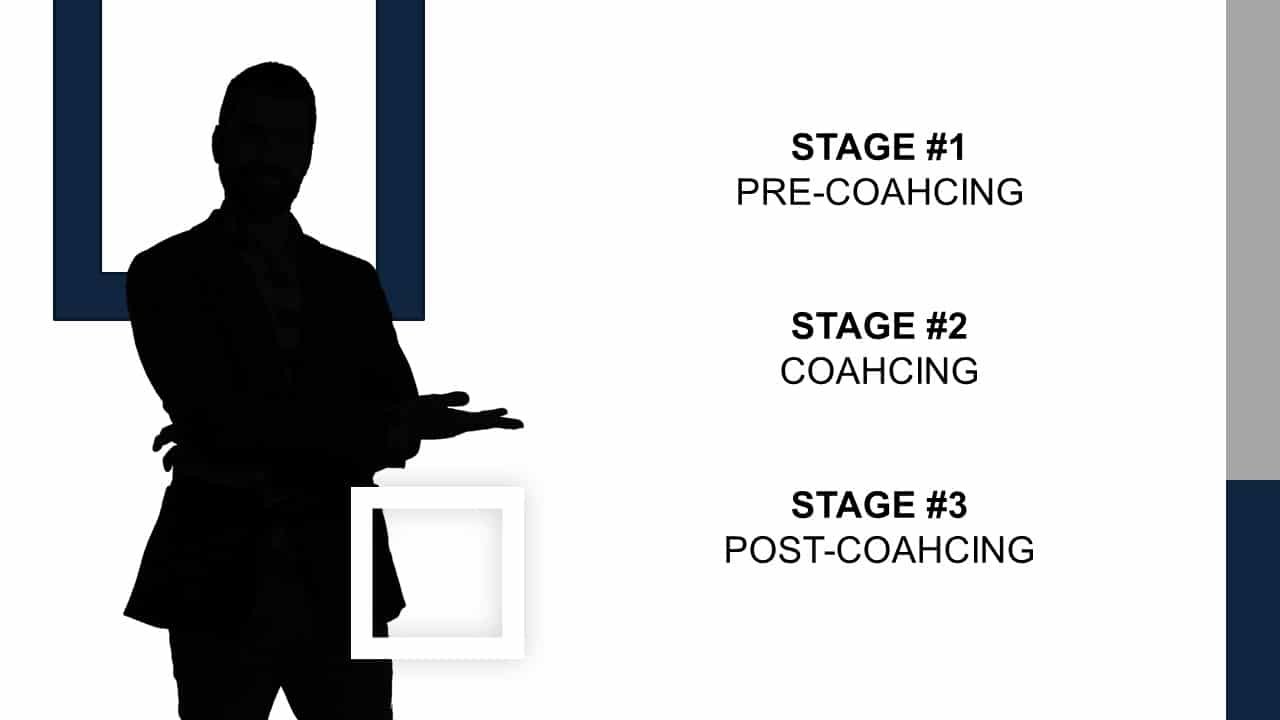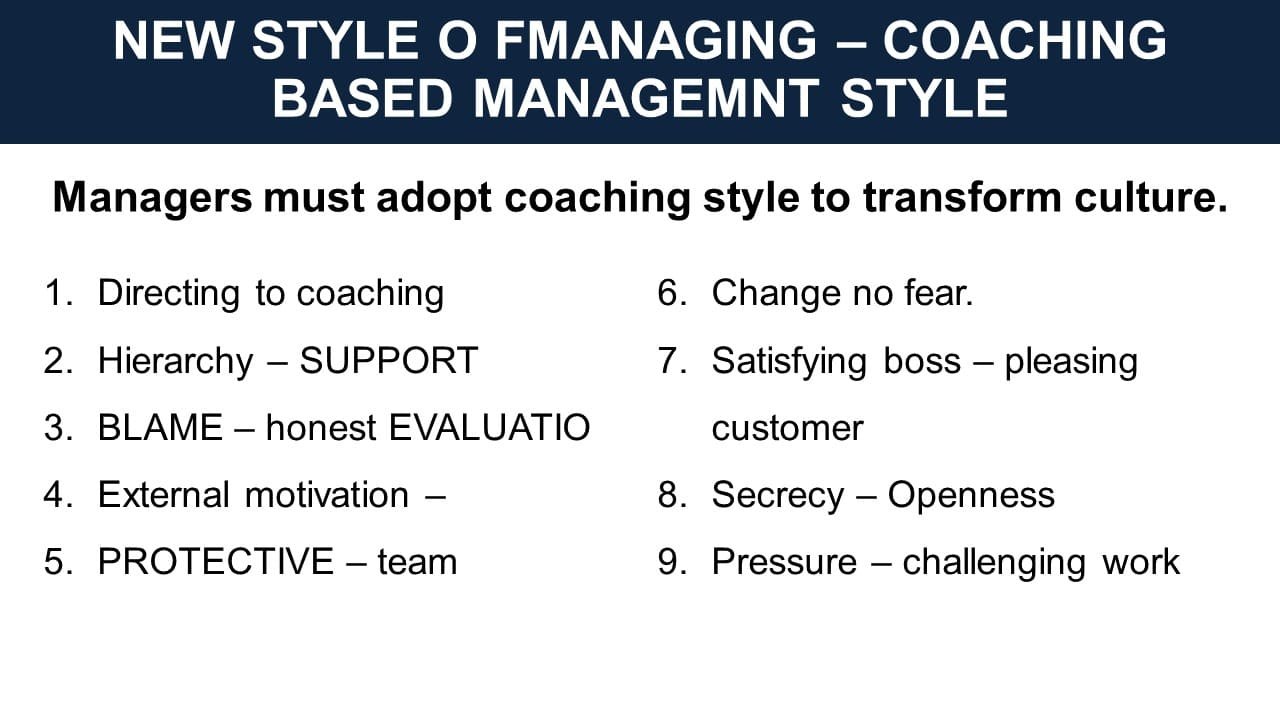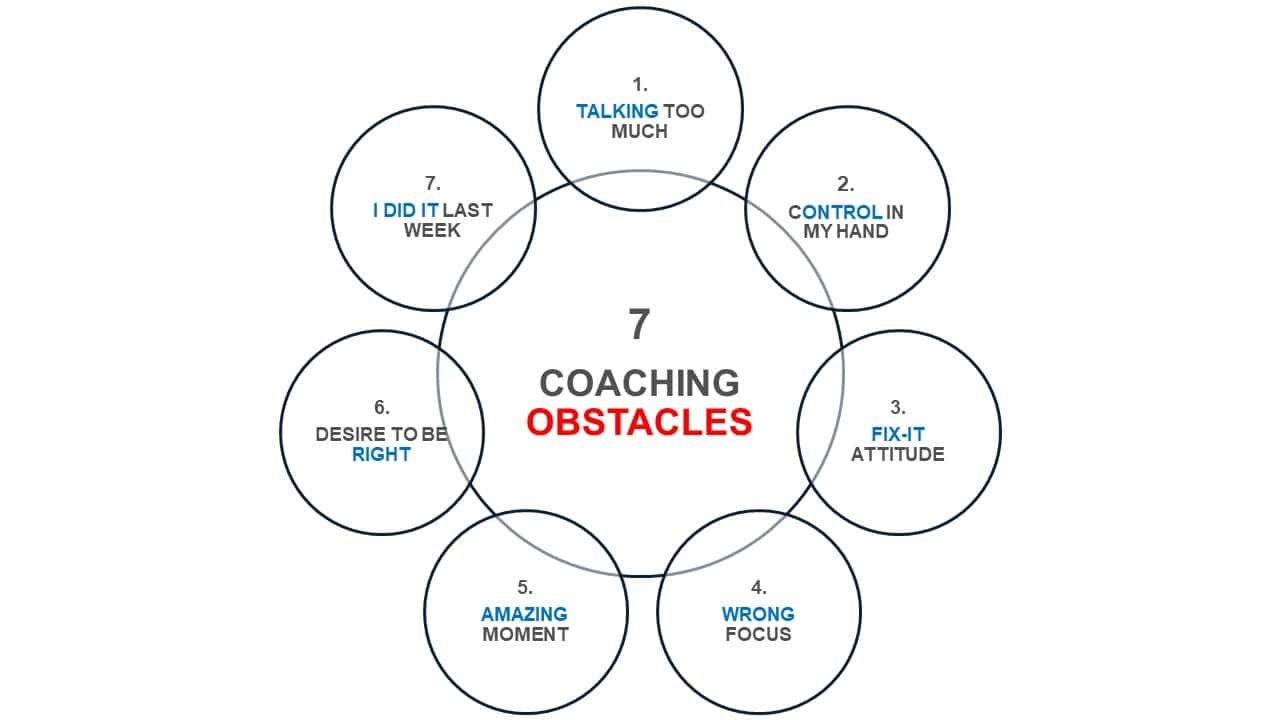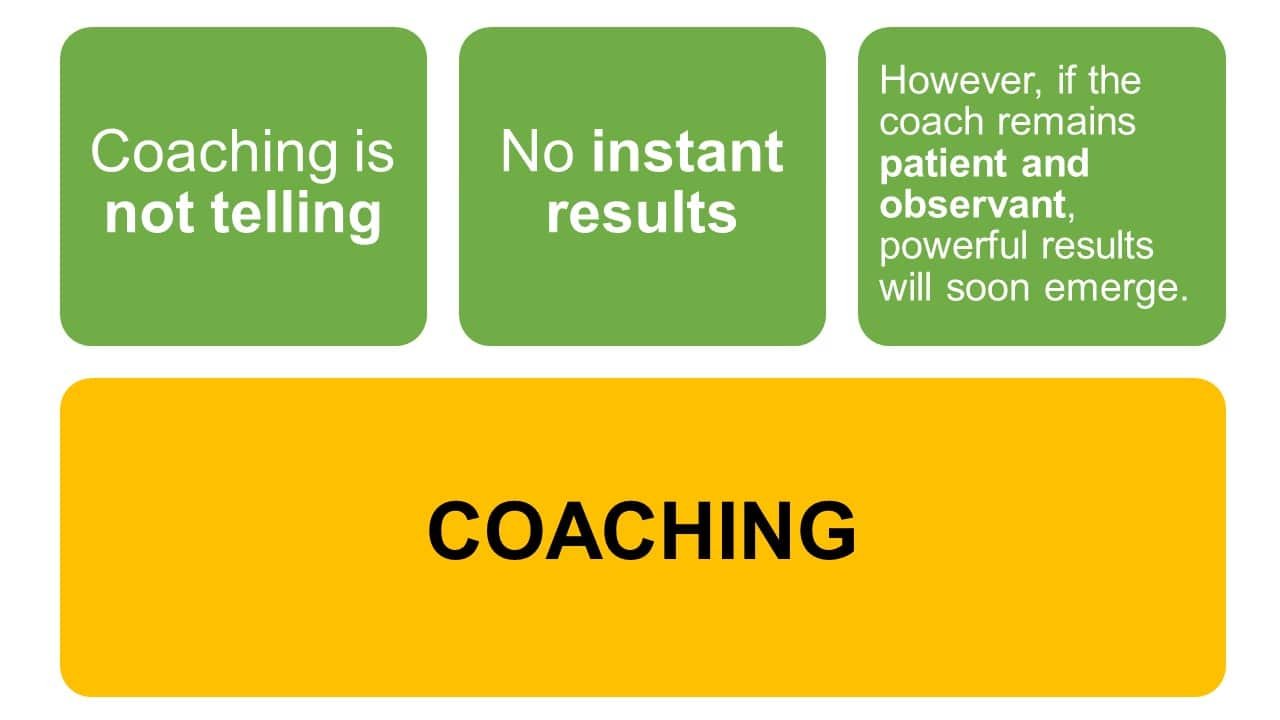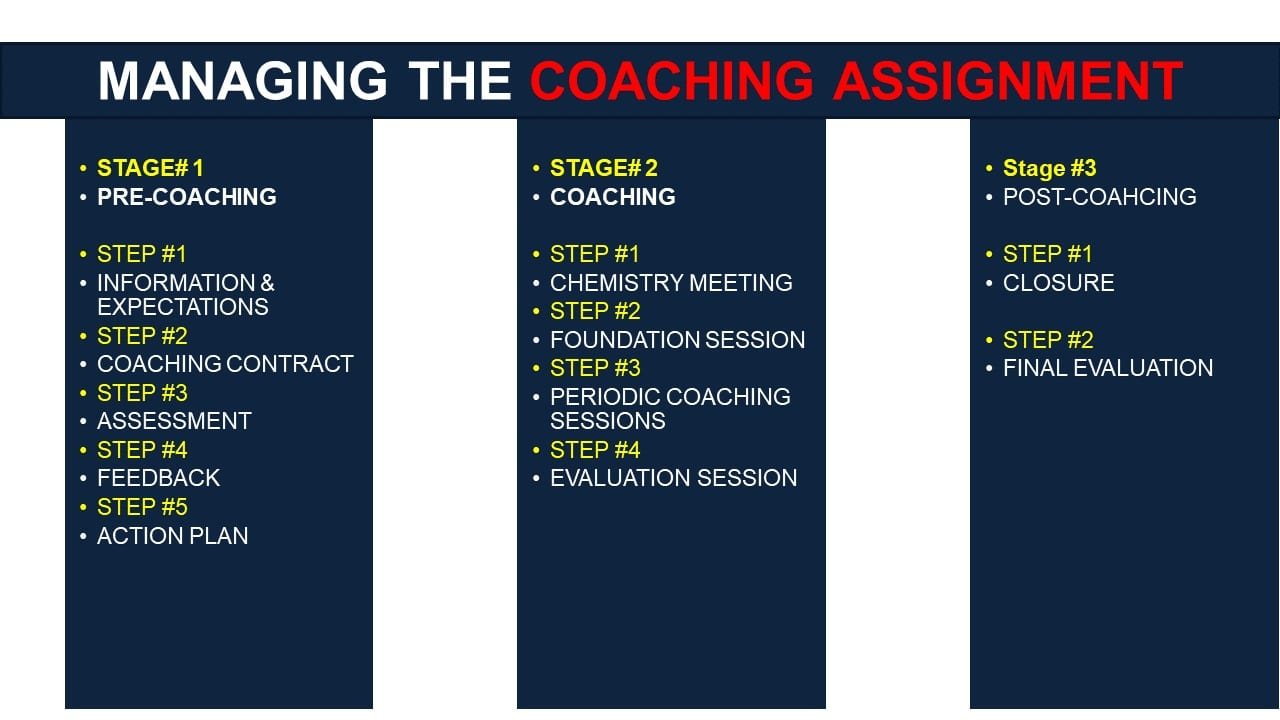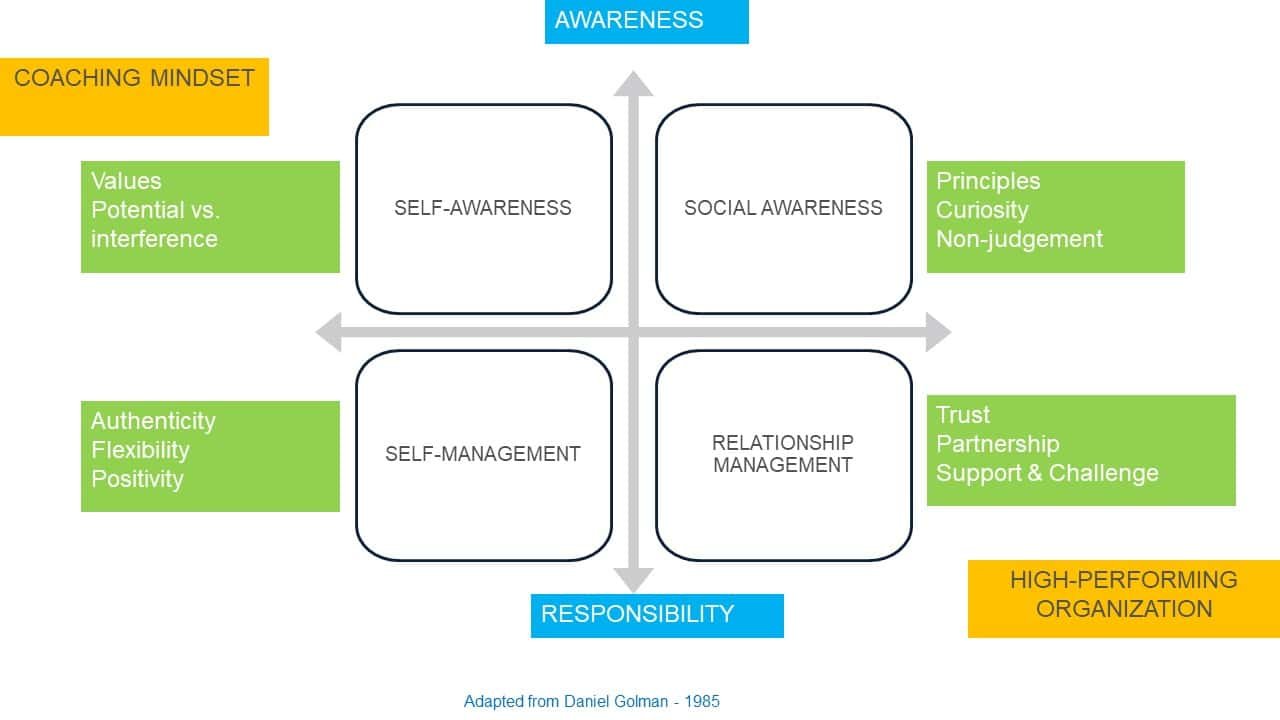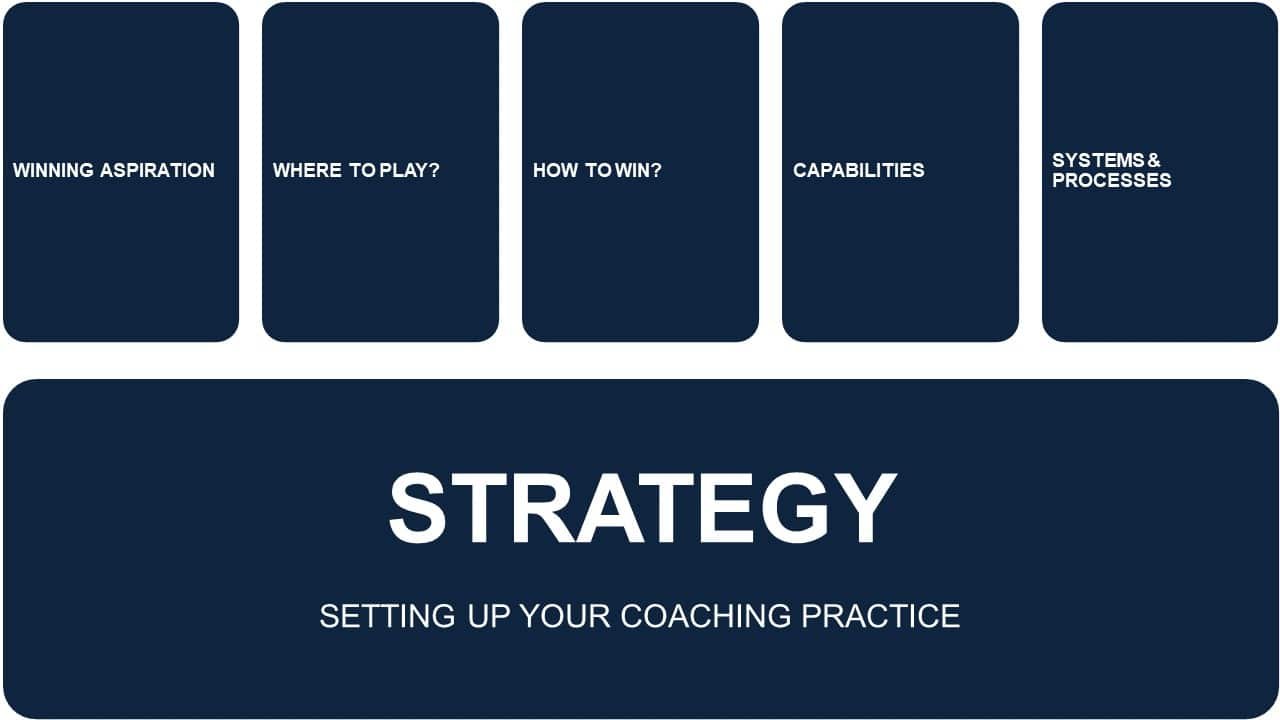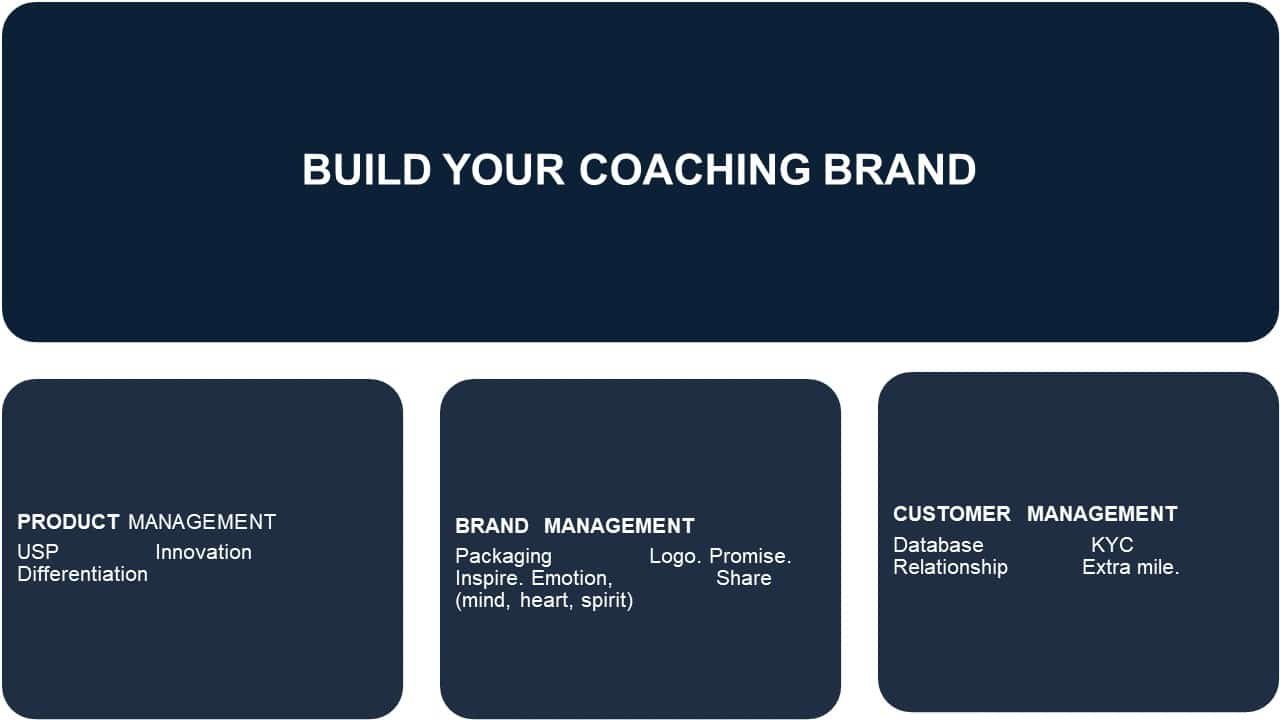insights of each program
5 Days Coaching Certificate
Outline of topics
Module 1 : 7 Basics of Coaching
- What Is Success Coaching?
- Seven Basics Of Success Coaching
- Three Differences Between Coaching & Advising
- Three Elements Of Coach’s Dna
- Six Distinctions Between Advice And Coaching
- Five Dynamics Of Coaching Relationship
- Six Most Critical Coaching Tools
- Four Essential Coaching Skills
- Four-Step Coaching Framework (Dare Coaching System)
- Five Advantages Of Using Qadcs
- Five Cautions Of Using Qadcs
- Six Questioning Skill
- Mentoring Vs. Coaching?
- What Is Coaching?
Module 2 : The coaching Market
- Strategy Forecast
- Coach Classification
- Recent Trends In Coaching
- Global Coaching Trends
- HBR Study
- Is Coaching Personal
Module 3 : The Inner Game
- Paint Your Coaching Insights
- Feedback
- Coaching Muscles
- Regard
- Awareness
- Self-Management
- Relationship Management
Module 4 : DNA of a Coach
- Trust Yourself
- Coaching Song
- Trust Your Skills
- Trust Your Coachee
- Essence Of Coaching
- Essence Of Coaching
Module 5 : Four Dimensions of coach development
- Theoretical Development
- Skill Development
- Personal Development
- Specialize In One Thing
Module 6 : Managing the coaching assignments
- Stage #1 Pre-Coahcing
- Stage #2 Coahcing
- Stage #3 Post-Coahcing
- Information & Expectations
- Coaching Contract
- Assessment
- Feedback
- Action Plan
- Closure
- Final Evaluation
Module 7 : Coaching Strategy
- Differentiation
- Cost leadership
- Strategy
- Signs Of a Bad Strategy
- Signs Of a Good Strategy
- Is Coaching Personal
Module 8 : 7 Coaching Obstacles
- Talking too much
- Control - Too much control on conversations
- Fix-it’ attitude
- Focus on what not to do
- Amazing - Finding ‘amazing moment’
- Right - Desire to be right
- Experience - Previous experience is relevant
Module 9 : How to secure coaching deals
- Handling a Query
- Invest In The Right Client
- Handling Objections
- Exercise Determining The Budget Range
- Establishing Objectives
- Establishing Metrics
Module 10 : 6 Coaching Tools
- Questions
- Affirmative
- Image
- Specific
- Energy
- Rapport
Module 11 : Coaching Model
- Direction
- Empower
- Analysis
- Roadmap
Module 12 : Power of Re-framing
- 'Reframing’ Statements
Module 13 : Selling Coaching services
- Marketing & Selling Your Coaching Services
Module 14 : Coaching Skills
- Listening
- i Ntuition
- Feedback
- Emotional Balance
Module 15 : Building your coaching brand
- Create Value
- Communicate Value
- Deliver Value
Module 16 : Establishing ROI
- Product Management
- Brand Management
- Customer Management
Module 17: Power Questions
- Is Coaching Worth The Money?
- Difference Of Roi
- Research Problems
- Critical Questions
- The Cipd
- Make Coaching Specific
- Strength Questions
- Hypothetical Questions
- End Result Questions
- Energy Questions
- Perfect Questions
- Paradoxical Questions
Module 18 : Signs of Coachee Engagement
- Active
- Reporting
- Openness
- Positivity
- Enthusiasm
Module 19 : 7 Coaching Mindset
- I Am Committed
- i Am Open &Trustworthy
- My Coachee Is Capable
- My Coachee Is Capable
- i Focus On Coachee
- Coachee Has The Perfect Solutions
- Coachee And i Are Equal In Relationship
Module 20 : Traits of a Coach
- Lead By Example
- Value & Support
- Flow
- Focus
- Clarity
- Possibilities
- Accountability
- Realistic
- Impartial Sustained Results
Module 21 : Accountability and Follow Through
- Positive Accountability?
- Encouragement & Celebration ?
Module 22 : Caution and Benefits of Coaching Model
- Right answers
- Know everything
- Fix every problem
- Dominate & Control
- Focus on me
Module 23 : Coaching Exercises
- Childhood Coach
- Meeting With Your Future You
- Three Mindsets
Module 24 : Coaching for Performance
- Methodology
- Application
- Purpose
5 days train the trainer
Outline of topics
Module 1 : Training, Learning and Facilitation
- Teaching Vs. Training
- Training & Development
- Training & Facilitation
- Presenting & Training
Module 2 : DNA of a Trainer
- Love Your Training
- Love Your Audience
- Love Your Self
- Who Is a Trainer?
Module 3 : Go to Market Strategy
- Developing a Winning Gtm
- Define Your Target Markets
- Define Your Target Customer
- Define Your Brand Positioning
- Define Your Offering – Product
- Define Your Channels
- Build Your Pricing Model
- Define Your Marketing Strategy
Module 4 : Self-Discovery
- Life Line Exercise
- Your Role Model
- My Metaphor As a Trainer
- Your Vision Board
Module 5 : Selling Training services
- Key Of a Successful Busines?
- Sales Model
- Svp Formula
- Objection Handling
- Objection Close
- Buying Signals
- Answering Customer Objection
Module 6 : Presentation Skills
- Types Of Speakers
- Tips On Presentation Skills
- Presentation Framework
- Skill Focus
- Body Language Matters
- Secret Formula Cid
- Consequences Of No Connection
- How To Connect?
- Energizer
- Presentation Scenarios
Module 7 : Adult Learning Theories
- Andragogy
- Transformational Learning
- Experiential Learning
Module 8 : Learning styles
- Adult Learning Styles
- Visual Learners
- Auditory Learners
- Kinesthetic Learners
Module 9 : Training, Learning and Facilitation
- Teaching Vs. Training
- Training Vs. Learning
- Training & Development
- Training & Facilitation
- Presenting & Training
Module 10 : Audience Management
- Responding To Questions
- Handling Difficult Audience
- Dominant
- Side-Talker
- Stroller
- Complainer
- Expert
Module 11 : Program Delivery Framework
- Responding To Questions
- Handling Difficult Audience
- Dominant
- Side-Talker
- Stroller
- Complainer
- Expert
Module 12 : Story Telling
- Art Of Story Telling
- Neuro Story Net
- Elements Of a Good Story
- Dopamine
- Oxytocin
- Endorphins
Module 13 : Learning Methodology
- Egg Drop
- Why Teams Fail
- Adult Learning Pricniples
Module 14 : Training Needs Analysis
- Training Need Assessment
- Company Policy
- Employee Records
- Performance Data
- Observations
- Informal Discussions
- Focus Groups
- Interviews
- Questionnaires
- Skill Tests Or Demos
Module 15 : Launch yourself as a Trainer
- Build Your Brand
- Designing Your Program(s)
- Developing Clients
- Ensuring Impact
Module 16 : Activity Based Learning
- Back Stage: Preparation
- On-Stage: Facilitation
- Observations
- Debrief QuestionsDebrief Questions
- Off-Stage: Recognize Performance
Module 17: Client management Process
- Connect
- Present
- Close
- Follow Up
Module 18 : Game Plan
- Dreams Into Reality Game Plan
- Know Your Gpa?
- Exercise: The Top Trainer Replaces You: Self-Reflection
Module 19 : Negotiation Skills
- Negotiate To Win
- Skill Building Scenario
- Never Say Yes To First Offer
- Negotiation Tools
Module 20 :Persuasion Skills
- Force
- Negotiate
- Persuade
- How To Get Yes
coaching conversation
Outline of topics
Module 1 : 9 Basics Of Coaching
- Personalised
- One-on-one
- Enabling
- Model-Based
- Goal Focused
- Regular & Ongoing
- Effectiveness – Based
- Adapted & Adaptable
- Time Bound
Module 2 : 3 Distinctions between Managing vs. Coaching
- I know how vs You know how
- I tell you vs I ask you
- You follow instruction vs You decide
Module 3 : 9 differences between Formal and Informal Coaching
- Structured vs Unstructured
- 45-60 minutes vs 3-5 minutes
- Professional vs Corridor
- 10-12 sessions a year vs Almost daily
- Pre-decided vs Spontaneous
Module 4 : Coach-Like Mindset
- Coaching Is Helping People
- 2 Core Beliefs Of Coach-Like Leaders
- 2 Commitments Of Coach-Like Leaders
- 2 Actions Of Coach-Like Leaders
- Break the cycle
- Help people grow
Module 5 : 7 Differences: Routine & Coaching Conversations
- Talk to argue vs Listen to understand
- Point out faults vs Clarify with questions
- Proving ‘I am right’vs Proving ‘I am committed to help’
- Protecting and defending vs Being open and disclosing
- Controlling and manipulating vs Respecting and collaborating
- Changing others vs Supporting others
- Locking into positions vs Sharing views truthfully
Module 6 : GROW Coaching Model
- Goal
- Reality
- Options
- Way Forward
Module 7 : ATM Formula - Coaching Readiness
- Area
- Time
- Mindset
Module 8 : PIA Rule - Coaching Mindset
- Patience
- Inquisitiveness
- awareness
- RIP Coaching
- Resistance
- Importance
- Preference
- Overcoming Coachees Resistance
- Assess Readiness
- Coachee’s Barriers
Communication Skills
Outline of topics
Module 1 : Communication dynamics
- Home Truths:
- Causes of failure:
- The right balance
- Communication Theory
- Openness and trust-examples
- Relevance - examples
- Motivation-examples
- listening
- Silence
- Silence can inform others
- Simplicity & complixity
- Effective communications
Module 2 : Messenger of communication
- Trusting messengers
- Involving others
- Meeting the needs of employees
- How to involve others
- What is effective communication
- Barriers to communication
- Preparation and presentation
- Organisational barriers
- Culture challenges:
- Size and strucutre
- Rsponse foul-up
- Practical steps
Module 3 : Managing communcation channels
- Choice of channel
- The spoken word
- Loose tounge lose no time
- Vanity and verbosity
- The written word
- Visual communication
- Non-verbal communication
- New technology
- Conscious communicators
- Communicating with groups
- Taking less can achieve more
- Know Yourself
Customer Service
Outline of topics
- importance of How
- Customers buy experiences
- Customer expectations
- Repeat business
- The silent complainer
- The Company Ambassador
- Customer service matters
- Attention to detail
- Good communication
- Taking responsibility
- Deliver great service
- Develop a positive attitude
- take full responsibility
- stay calm under pressure
Module 2 : Listening skills
- 80:20 ratio
- Check understanding
- Demonstrate listening
- Build relationships
- Diagnostic listening
- Purpose
- Content
- Presentation
- Style
- Customers will get frustrated if
- Using email
- Head in the sand
- Benefits of complaints
- Common causes of complaint
- Handling complaints
Module 3 : Customers management
- Angry customers
- Is the customer always right?
- Everyone plays a role
- Team managers should:
- Corporate culture
- Internal network mapping
- Internal customers
- Passing on work
- Setting standards
- internal indicators
- Customer satisfaction
- Mystery shopper programmes
- Rewarding team members
- Overcoming obstacles
Emotional Intelligence
Outline of topics
- Why Is EI So Popular?
- US Research
- Recent UK Research
- Hard Case For Soft Skills
- Self-awareness
- Emotional management
- Self-motivation
- Relationship management
- Emotion coaching
- Who Am I As Manager?
- internal dimensions
- external dimensions
- Self-Awareness Example
- impact of organizational change
- model approach to become eI
- how to identify emotional response
- getting the mood - seeing
- getting the mood - hearing
- Role of the e-coach
- Emotion Coaching
Module 2 : Hard Case For Soft Skills
- Self-awareness
- Emotional management
- Self-motivation
- Relationship management
- Identify Your Emotional Response
- Turning Into Your Senses
- Assess Information Collected
- Getting In Touch With Feelings
- Keep A Feeling Diary
- Knowing your Goals
- set exceptional goals
- What Are The Implications?
- Believe Your Behaviour:
- Trust Your Feelings
- Be Honest With Yourself
- Key EI Capacity
- The Dynamic Of Emotion
- Worry Buster Technique
- Visualise an inspirational mentor
- Creative visualisation
Module 3 : Interpersonal Intelligence
- Relationship Management
- Defining a relationship
- Reasons why relationships fail:
- Reciprocity
- Relating over time
- Engage in exchange
- building effective relationships
- Working with others
- Approach to management
- Alliance
- Assessment
- Alternatives
- Action Planning
- EI as a change management strategy
- Some people take the micky
- Implementing change management strategy
- Conducting a competency gap analysis (CGA)
- Final thoughts & reflection
Handling Complaints
Outline of topics
- Why Complaints Are Good News
- Complaints Are Opportunities!
- The Income Multiplier Effect
- Make It Easy To Complain
- Give Customers a Choice Of Mechanisms
- Tips On Being Nice
- Emotions Run High
- Handling Aggressive Complainers
- Handling Professional Complainers
- Handling Constructive Complainers
- Handling Passive Complainers
Module 2 : Communication Skills
- Consistent Approach
- What To Include In a Complaints Policy
- Information From Customers
- Logging & Analysing Complaints
- Customer Service Desks
- Establishing Procedures
- Techniques For Special Situations
- Non-Verbal Language
- Written Communication
- Transactional Analysis
- Ego State Model
Module 3 : Complaints Into Compliments
- Stimulus & Response
- Complimentary Transaction
- Crossed Transactions
- Uncrossing a Transaction
- Staying In Adult
- Defining The Customer
- Passing Blame
- Two Way Process
- Treat Like Royalty
- Compliments & Comments
- Relationship Marketing
- Customers Expectations
Interview Skills
Outline of topics
- Closed Questions
- Word Of Warning
- Open Questions
- Multiple Questions
- Leading Questions
- Probing Questions
- Blockbusting Questions
- ‘About’ Questions
- Reflective Questions
- Hypothetical Questions
- Challenge Questions
- Framing Questions
- Silence
- Listening
- Listening Barriers
- Non-Interventional Listening
- Mirroring Body Posture
- Echoing Talking Speed
- Note-Taking
Module 2 : Understanding
- Paralinguistics
- Types Of Body Language
- Body Language: Hands
- Body Language: Sitting
- Body Language: Standing
- Eye Contact On Average
- Looks/Appearance
- Expressions Of Emotion
- The Selection Interview
- Candidate Data Sheet
- Job Specification
- Quantifying The Job Specification
- Short-Listing
- Interview Preparation
- Prepare The Interview Room
- Start The Interview
- Floor Time
- Using a Decision Matrix
- Reference Checks
Module 3 : Interview Types
- Overcome Barriers
- Sos + 5 Approach
- Ideal Structure Of Interview
- Adapting Interview Style
- The ‘Outcome Mind Set’
- The ‘Hamburger’ Technique
- The Discipline Interview
- The Snap Method
- Ending The Interview
- The Counselling Interview
- The Wraf Approach
- Welcoming
- Reflective Listening
- Reflecting Body Posture
- Reframing
- Action Planning
- Fact-Finding Interview
- Techniques For Fact-Finding Interview
- Additional Techniques
leadership developement
Outline of topics
- ‘Leaders Are Born Not Made’
- Situational Leadership
- Charismatic Leadership
- Transactional Leadership
- Transformational Leadership
- Behavioural Leadership
- Leadership role
- Emerged Leader
- Effective Leaders
- Assigned Leader
- Strategic Leader
- Operational Leader
- Team Leader
- Perfect Leader
- Leadership Style
- Adapting Leadership Style
- Expectations Of The Follower
- Belonging And Identity
- ‘Magic Lamp Activity’
- Coaching And Mentoring
- Successful Leaders
- Leadership Failure
- Keep Effective Control
- Leadership Availability
- Have Patience
Module 2 : Leadership Attraction
- Point Attraction
- Cycle Attraction
- Torus Attraction
- Strange Attraction
- Role Of Leader In The Team
- Challenges Of Leading a Team
- Leading Different Team
- Function Teams
- Cross-Functional Teams
- Project Teams
- Virtual Teams
- Remote Teams
- Multi-Cultural Teams
- Developing The Team
- Building High-Performance Team
- What Is Vision
- Inspiring Others
- Influencing As a Process
- Influencing Approaches
- Creating a Change Mindset
- Confirming The Change
- ‘Leadership Mnemonic’
- Tips For Effective Leaders
- Influencing Skills
Module 3 : Information Gathering
- Quality Of Information
- Gather Background Information
- Task-Related Information
- Build Background Information
- Ask The Right Questions
- Plan
- Obtaining The Information
- Take a Step Back
- Conflict Resolution
- Take Control Of Your Time
- Benefits Of Conflict Resolution
- Conflict Not Handled Effectively
- Conflict Styles
- Collaborative
- Accommodating
- Adopting Different Styles
- Ideal Approach
- Interest-Based Relational Approach
- Conflict Resolution Process
- Set the Scene
- Gather Information
- Agree the Problem
- Brainstorm Solutions
- Negotiate a Solution
Life Coaching
Outline of topics
- Achieve success
- Where am I now?
- Defining success
- Motivators
- Assessing the risk
- Why you should set goals
- Why people don’t set goals
- Make them measurable
- How you should set goals
- Time bound
- Three at a time
- Work out your
- Goal setting – daily activities
Module 2 : Success Cycle
- Accept Your Mistakes
- Goal Achievement
- The Change Cycle
- Reducing Resistance To Change
- Tactics For Implementing Change
- Force Field Analysis
- Kubler-Ross Change Curve
- Managing Change
- Not Everyone Will Flow Though The Curve Smoothly
- Failure
- Persistence
- Famous Failures? But For Persistence…
Module 3 : Focus
- Time Management
- Limiting beliefs
- Playing Golf
- Enabling Beliefs
- Affirmations
- Affirmations rules
- Use your senses
- Luck
- Preparation, opportunity, luck
- Modelling
- Key motivators
- Motivators for losing weight
- Input / Output
Neuro Linguistic Programming
Outline of topics
- The History of NLP
- The Development of NLP
- Neuro
- Who is NLP for?
- How NLP can help?
- Consider Your Daily Priorities
- Four Key Principles
- Matching and Mirroring
- Pacing and Leading
- Setting Your Outcome
- SMART Goal-Setting
- Creating a well-formed outcome
- Senses
- Enhance Communication
- Visual - Seeing
- Auditory - Hearing
- Kinaesthetic - Feeling
- Submodalities
- Flexibility
- Understanding Perceptions
- Why it works
- Challenges in Business
- Standing in other people’s shoes
- Meta Technique
- Alleviate A Challenging Situation
- Presuppositions
- One Fundamental Presupposition
- A Resourceful State of Mind
Module 2 : There is no failure
- The meaning of communication
- The meaning of communication
- It’s Up To You
- Beliefs, memories and values
- Why beliefs are important
- Changing Negative Beliefs
- Enabling and Limiting Beliefs
- Creating a Positive Belief
- Your brain
- Neurons and brain pathways
- Limbic system in emotions and thinking
- Sleep and Dreaming
- The Habit Virus
- Rewiring thinking
- Unconscious Mind Responds
- ‘Flash Bulb’ Memory
- How thoughts affect your destiny
- Language Patterns
- Meta Programmes
- Generalities
- Small chunk - detail
- Internals & Externals
- Time orientation - Past & Future
- Procedures
- Pro-active
- Reactive
- Language Filters
- filters
Module 3 : Meta Model
- Your Inner Voice
- Negative and Positive Language
- words need to be used with caution
- Positive influence and persuasion
- ‘Logical Levels’
- Identifying different levels
- The Use of Logical Levels
- Practical Applications
- Accessing your skills
- Beliefs are used in NLP:
- Circle of Excellence
- Examples of positive resources
- Anchors
- Internal and External Anchors
- When to use anchors
- Creating positive anchors
- Future pacing and mental rehearsal
- The Score Model
- A Time Line
- Relate to Time
- Time line process for creating goals
- Create Achievable Outcome
- Represent Your Goal Clearly
- Ascertain your Time Line
- Use Time Line With Your Goal
- Realizing and visualizing your goals
- 10 Steps for Goal-Setting
- Four stages to learning a new skill
Presentation Skill
Outline of topics
- The Grand Presentation Waste
- The Presentational Irony!!
- THE 4 W’s
- Mnemonic Device
- Training Room Management
- Alliterations
- Wift?
- Prejudices - Attitudes - Beliefs
- Structuring Presentation
- Development Plenary
- Biker Method
- !!!Over Running!!!
- Questions About Questions
- The 3 p’s Methods
- The Publicist
- Presenters
- Performers
- The Three Wise Monkeys
- Body Language
- Hand Signals
- Body Behaviour
- Inner Thoughts
Module 2 : Making That Presentation Count
- Public Speaking
- One PICTURES SPEAKS A THOUSAND WORDS
- learn first
- Why Is Public Speaking Important
- PAMPERS Framework
- look confident
- Managing Surroundings
- Training Room Management
- Good Quality Oral Questions
- Retention Rates
- Qualities of A Good Oral Question
- How to Ask Questions
- Nomination
- Question framing
- Handling Delegates Answers
- Never Bluff
- Dealing With Room Questions
- The Heckler
- The Talker Or Know It All
- The Griper
- Finally The Whisperers
Module 3 : Presentational Aids
- The Use Of Audio And Visual Aids
- Powerpoint
- The Aim
- General Principles
- Fonts
- Master Slide
- Rehearse
- Layout
- Text
- The Use Of Capitals
- Adding Emphasis
- Line Spacing
- Alignment
- Fonts
- Colour Be Consistent
- Graphics
- Resizing
- Using Special Effects
- a Good Presentation
- Build-Ups Sparingly
- Don’t Abuse Transitions
- Mpegsin Presentations
Sales training
Outline of topics
- Steps To Account Development
- Planning From The Top Down
- Set ‘Meaty’ Targets
- Personal Qualities For Success
- Essential Knowledge
- Benefits And Features
- Remember Your p’s & q’s
- Partnering Tactics
- Time Management
- Invest To Save Time
- Information Sources
- Broad Mail Shot
- Focused Mail Shot
- Use ‘Aida’ To Structure Your Mail Shot:
- Key Steps In The Call Structure
- Making Appointments
- Selling By Phone
- Use Positive, Active Language
- Objection Handling
- Checklist For Making New Appointments
Module 2 : Prospects Finding
- Qualify And Probe
- Personality Types
- Inspirers
- Aspirers
- Enquirers
- Admirers
- Dealing With The Personality Types
- Fact-Finding
- Keeping Control
- Questions – Go On a Spree
- When They Reply To Your Questions
- Active Listening
- Feasibility Survey
- Cost-Benefit Analysis
- Presenting
- Visual Display
- Aims Of Presentation
- Delivery – Beginning And Ending
- Vhf – Learning Styles
- Audience Questions
- Exhibitions
Module 3 : Initiatives
- Agreeing Buy Criteria
- Keeping The Initiative
- Face To Face Objections
- Major And Minor Objections
- Negotiating
- Last Resorts To Break Deadlocks
- Obtaining Commitment
- Closing
- Ethics
- Focus On The 20%
- Surveying Satisfaction
- Defusing Complaints
- Key Forecast Data
- Forecasting Red Flags
- Sales Reports
- Activity Ratios
- Collecting Payment
- Managing Relationships
- Creating & Retaining Relationships
- Customer Partnerships
- Manage Yourself
Telephone Skill
Outline of topics
- The Way To Do Business
- The Good News
- The Bad News
- And It Gets Worse!
- Are You a Super-User?
- Or a Useless-User?
- Have You Ever?
- What Have You Got To Lose?
- When Communication Fails
- Communication Is More Than Words
- Communication Is About:
- Your Words
- Your Voice
- Your Body Language
- Barriers To Communication
- Call When You’Re At Your Best
- Tune In To Your Caller
- Different Roles Of Super-Users
- Probing Questions
- Use Probing And Reflective Questions For:
Module 2 : Signalling
- To Help You Listen Actively
- Show You’Re Listening Actively
- To Check For Understanding:
- To Show That You’Ve Understood:
- Prepare For a Longer Silence When
- Understand Callers More Clearly
- Choose Your Words Carefully
- Know What Your Caller Wants
- Exceed Their Expectations
- Answering Someone Else’s Phone
- Delivering The Message
- When The Call Is Not For You
- Getting Cut Off
- First Impressions
- Turn Complaints Into Loyal Customers
- What Not To Say
- The Building Blocks For Success
- Managing Aggression
- Managing Rudeness
- Find Out From An Enquiry
Module 3 : Making The Call
- The Facts
- Problems You May Have
- Preparing To Make a Call
- After The Call
- Speaking To Answer Machines
- If They’Re Not Available
- Obtaining Information
- Getting What You Want
- Making An International Call
- Build Rapport On The Phone
- The Super-User’s Oath
- Organise Your Phone Environment
- Position Your Phone For Comfort
- Identify What Eats Your Time
- Troubled By Time Wasters
- Control Interruption
- When You Need To End a Call
- Use Precision Endings
- Say When It’s Not Convenient
- The Choice Is Yours
TRAIN THE TRAINER
Outline of topics
- Trainer Techniques And Skills
- Concern And Availability To Facilitate Learning
- How Adults Learn
- Do Brains Decline With Age?
- What Brain Prefers
- Retention: The Proof
- Brain – Right Side Is Creativity
- Stimulating The Left And Right Brain
- Information Is Stored In Vhf
- Multi-Channel Messages
- 5 Kinds Of Donkey Bridges
- First Letter Acronym
- First Letter Phrase
- Rhymes & Slogans
- Logos And Image Association
- Using Wift
- Ideal Environment Checklist
- Seating Patterns
- ‘Amphitheatre’ Advantages
- ‘Amphitheatre’ Disadvantages
- Seating Patterns Psychology
- Varying The Media
- Memory Techniques – Name Cards
- Training Methods
Module 2 : Enthusiasm
- Remember Names And Faces
- Icebreakers
- a Good Inclusion Activity
- ‘The Facilitraining Rainbow’
- Demonstrating
- Socratic Direction
- Facilitating Discussion
- Brainstorming
- Process Monitoring
- Nerves: The Murphy Monkey
- Using Your Voice
- Lighthouse Technique
- Understanding Comes From:
- Body Language Tips
- Non-Verbal Lubricators
- Facilitating Discussion
- Obtaining Ideas
- Process Monitoring
- Dealing With Difficult Questions
- Active Listening
- Dealing With Challengers
- Flip Chart Advantages
- Flip Tips Graphics
- Plan Ahead
- Audio Visual Support
Module 3 : Visual Warning
- ‘The Facilitraining Rainbow’
- Visual Health Warning
- Use The ‘Storyboard’ Approach
- Overhead Projector
- Avoid ‘Keystone’ Effect
- Using The Projector
- Video And Dvd Advantages
- Video And Dvd Disadvantages
- Recorded Speech
- Anecdotes And Metaphors
- Parables Persuade Change
- Cross-Sensing
- Murphy’s Law
- Video Feedback
- Icebreakers
- Two True, One False
- Stick-Up Needs
- Why Use Case Studies?
- Case Study Rules For Trainers
- Video Recording
- Successful Role-Play
- Role-Playing Feedback
- Role-Playing Rules On Feedback
- Project Work
- The Group Recap
Start breathing your ideal Life
Outline of topics
- Clarity Is Power
- Find Your Own Mountain
- Power Of Winning Framework
- Dream, Believe, & Achieve
- Receipt Of Strength
- Ability * Practicing = Strength
- Find Strength
- Find Clarity
- Trust Yourself
- Trust Skills
- Transform Limiting Beliefs
- Responsibility And Ownership
- Connect 7 Goal Dots
- Visualizing Your Goal
- Create Visibility
- Vision Board
- Exercise Standing Ovation
Module 2 : Master Your Own Mind
- Message & Reflection
- The Mind Is Powerful..
- The c.a.r.e. Model
- Capable (Are You Good At What You Do?)
- Authentic (Are You True To Self And Others?)
- Reliable (Do You Do What You Say You’Ll Do?)
- Engaged (Do You Connect And Work Well With Others?)
Module 3 : Ignite Passion In Your Relationship
- Focus Model
- Find
- Observe
- Connected
- Understand
- Social Relationship
- Social Relationship
- Rediscover Activities Together
- Encourage Physical Contact
- Be Thoughtful
- Share The Interests Of The Other
- Make Him Laugh
Module 4 : Switch The Sources Of Negativity
- Toxic Relationships
- Lack Of Support
- Anxiety
- Your Own Inner (Negative) Voice
- Take The Charge Of Your Life
- s.c.o.p.e.
- Slow Down
- Consider The Context
- Open Up Your Senses
- Poster Thoughts
- Enjoy This Moment
- Reflection Questions
Magic Leadership
Outline of topics
- Why Leaderment?
- What Is Leadership?
- Management Vs. Leadership
- Managerial Skills Vs. Leadership Skills
- Principles Of Leadership
- Who Is The Leader?
- Importance Of Self-Leadership
- Are Leaders Born Or Made?
- Managerial Grid
- Good Management Roles
- Action-Oriented Roles
- People-Oriented Roles
- Thought-Oriented Roles
- Traits Of Effective Leaders
- Leadership Styles
-
Crisis Leadership
Framework - Promise Is Your Compass
- The Power Of Promise
- How Do You Take a Risk?
- See The Consequences In Advance
- Know Your Complete Plan
- What Does It Take To Face Risk?
- Innovative
- How To Drive?
- Empowerment Is a Feeling
- The Laws Of Leadership At The Positional Level
- The Laws Of Leadership
Building Meaningful Connection
Outline of topics
- Produce Model
- Trust Buster Capable
- Trust Yourself
- Dashing Model
- Trust Buster Authentic
- Authentic Dnc
- Do Faster Model
- Trust Buster Reliable
- Leadership Questions
The Power Of Real Estate
Outline of topics
- Fixed Vs. Growth Mindset
- Change Your Words, Change Your Mindset
- Five Steps Formula To Get On a New Level
- Creating a Wealthy Mindset
- Adopting The Empowerment Mindset For Wealth
- Tips For Becoming Empowered For Wealth
- Conclusion
- What Is An Asset?
- Trust Buster Authentic
- Asset Vs. Liability?
- Asset Vs. Liability?
- Why Create a Real Estate Business Plan?
- Steps Of Real Estate Business Plan
- The World Of Real Estate Investing
- Types Of Real Estate
- Residential Real Estate
- Commercial Real Estate
- Industrial Real Estate
- Land
- Four Factors Affect Real Estate Investing
- Four Reasons To Invest In Real Estate
- Real Estate Investment Strategies
- Buying And Holding
- Fixing And Flipping
- Wholesaling
- Are You Committed To Your Real Estate Investment
- Tips For Profitable And Risk-Free Deal
- The 5 Big Contract Components
- Real Estate Contract Law
- Contract Creation
- Classifications Of Contracts
- Forms Of Contract Termination
- Breach Of Contract
- Determining The Value Of The Subject Property
- Calculating Fixed Costs
- Your Profit
- Finding Properties
- Letter
- Why You Need To Understand Real Estate Financing
- All Cash
- Conventional Mortgage
- Portfolio Lenders
- Fha Loans
- 203k Loans
- Home Path Mortgages
- Owner Financing
- Hard Money
- Private Money
- Home Equity Loans And Lines Of Credit
- Partnerships
- Commercial Loans
- Eiuls, Life Insurance, Roth Iras, And Other Sources
- Moving On


